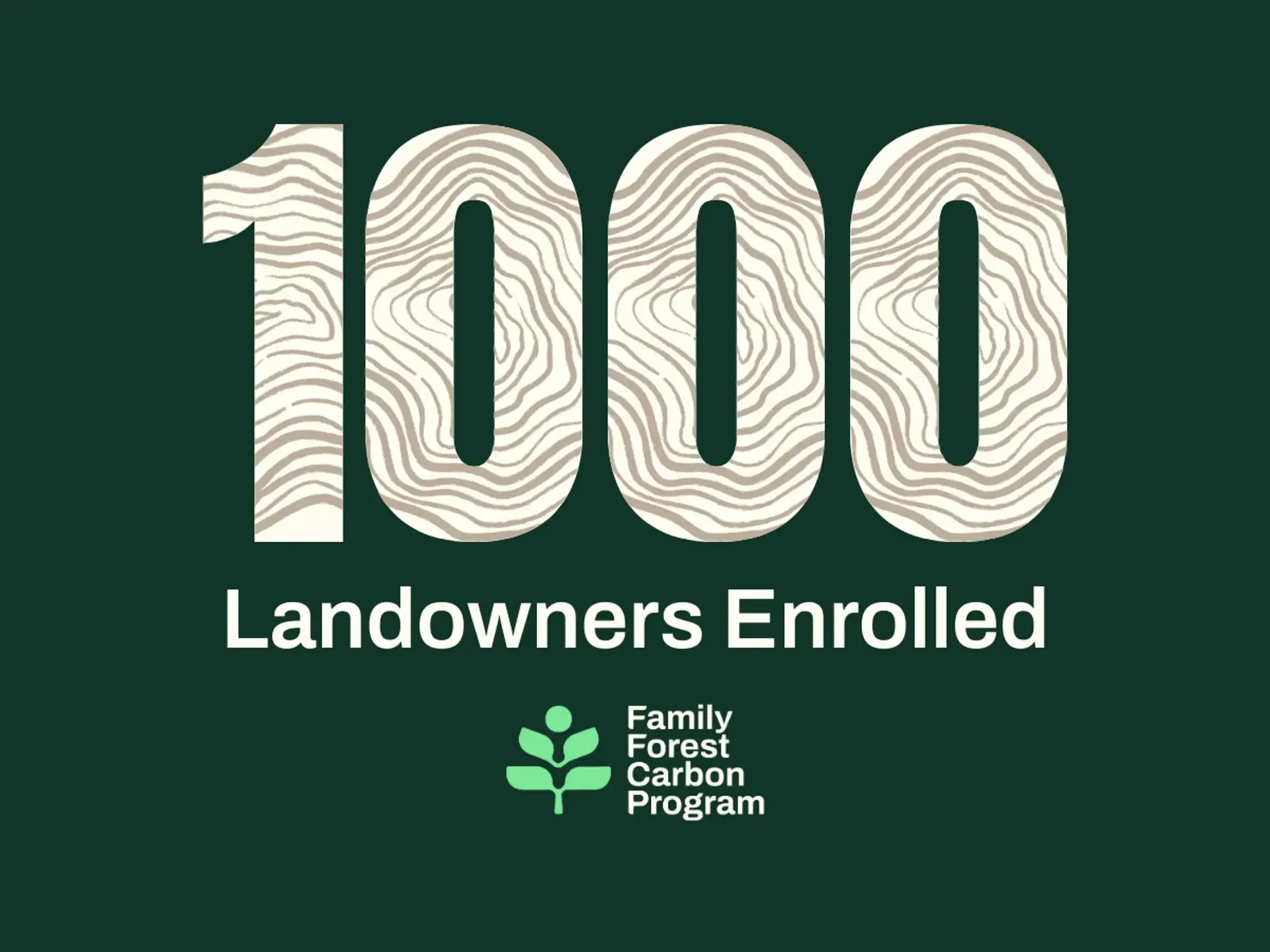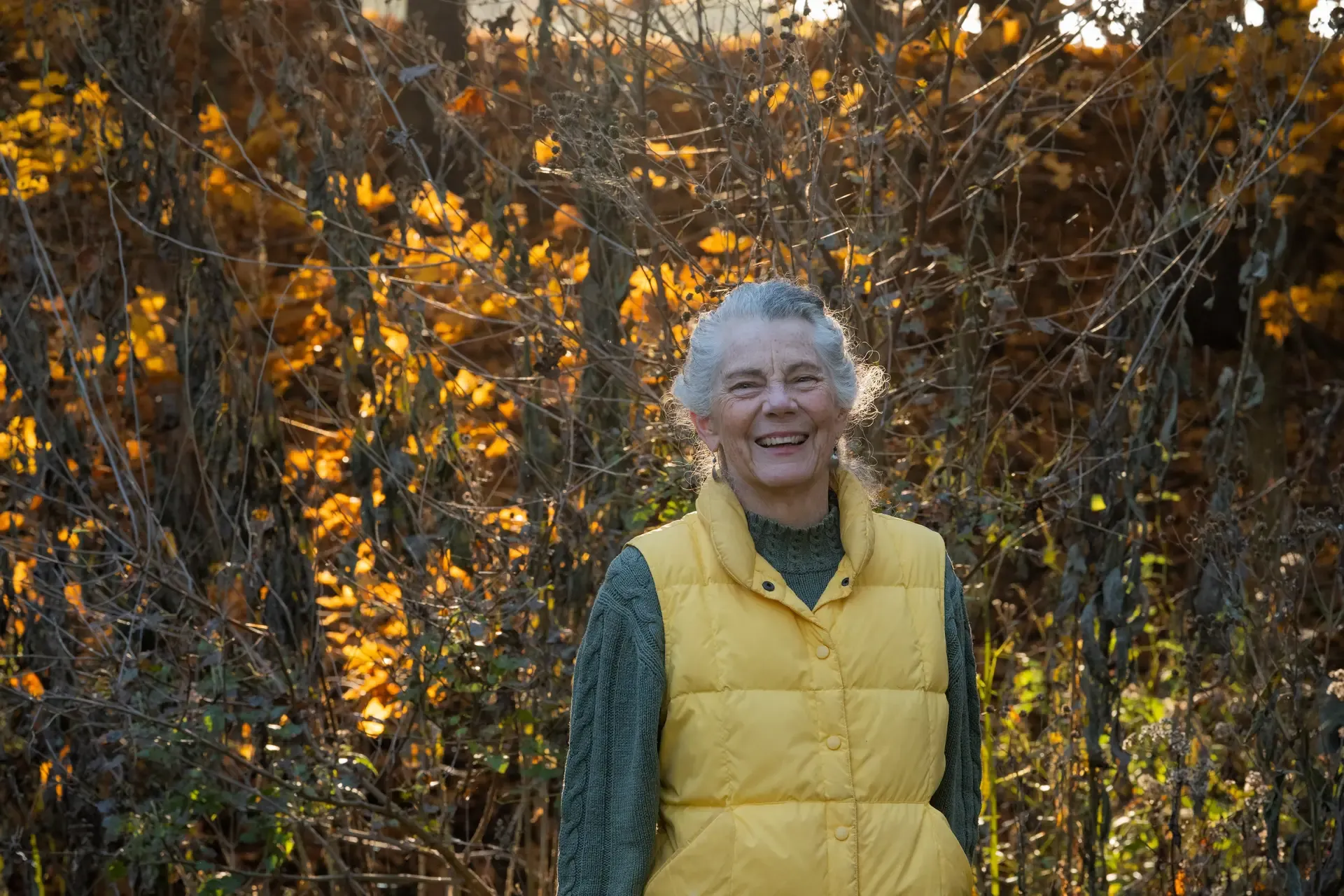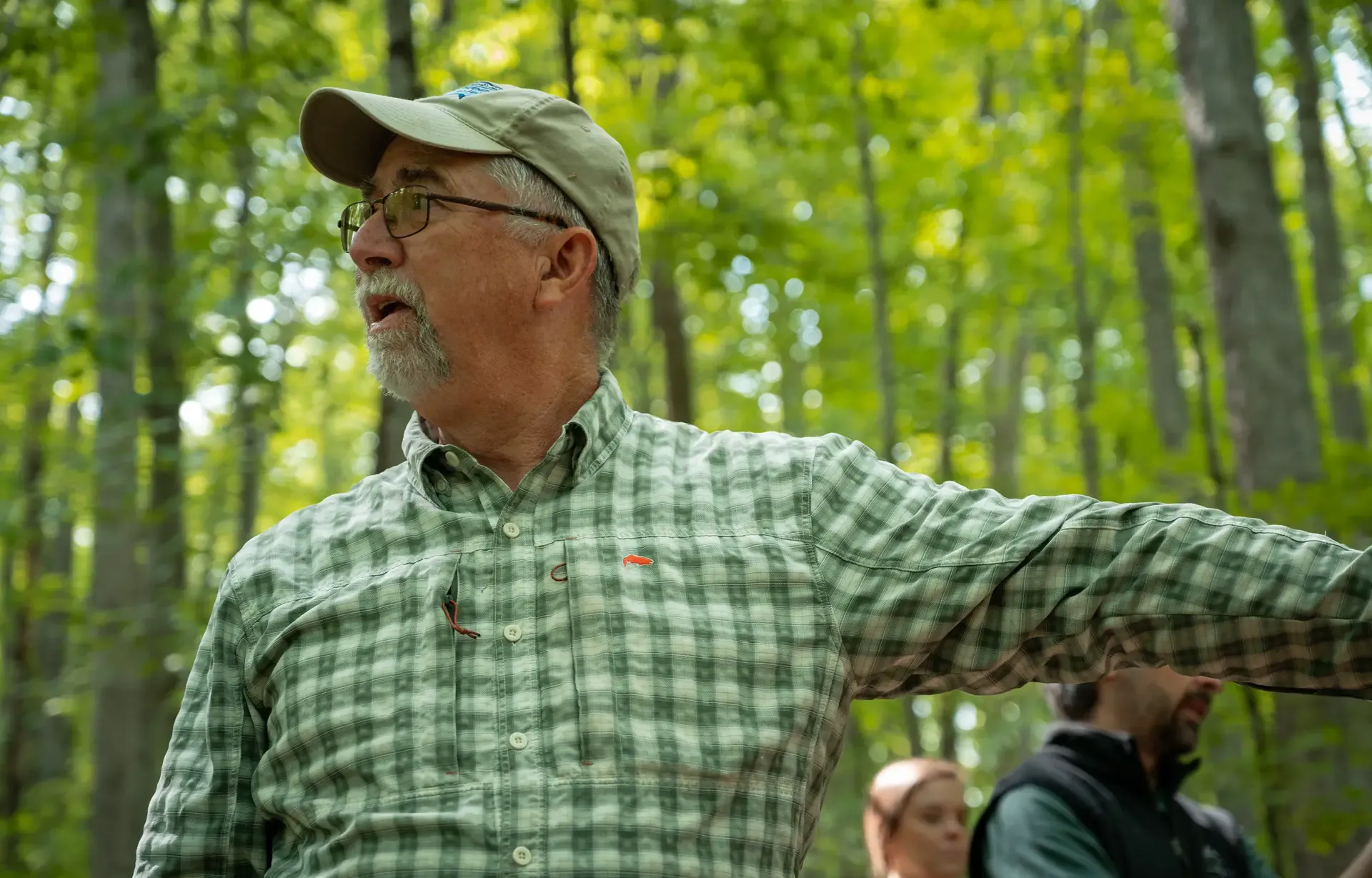1 Mission Delivered 1,000 Ways

Growing up, Susan Benedict learned about the hard labor that came along with managing land to keep her family’s forest healthy. Before his passing, her father instructed her to keep the land in their family, and she was prepared to do so. But with the financial and technical burden of managing it on her own, on top of the gypsy moth epidemic that devastated their wood supply, Susan knew she needed solutions.
In 2020, the American Forest Foundation launched the Family Forest Carbon Program, a new way for landowners to access the technical and financial support to care for their woodlands. Susan was among the first to enroll, impressed with the program’s transparency, credibility, and flexibility to meet her and her lands’ needs. She now has access to expert foresters with no further costs and receives annual payments that she puts towards her property taxes. Susan is relieved to fulfill her father’s wishes, keeping the land in the family and passing it on to the next generation without the financial burden.
Five years later, the program is celebrating the enrollment of 1,000 landowners across 19 states, providing improved forest management and reforestation practices to family forest owners and farmers who want to do right by their land, their families, and the planet. That’s 1,000 people creating healthier wildlife habitats, cleaner air and water, more biodiversity, stronger trees to withstand extreme weather, and sustainable forest products for rural economies.

Landowner Susan Benedict with her granddaughter
“My hope is that we can take this from a third-generation Tree Farm to a five-generation Tree Farm. I think it can be done, it's just a matter of finding ways to keep the land sustainable and profitable.” - Susan Benedict, PA
Landowners like Susan participate in FFCP for a multitude of reasons, all with their own aspirations for their forests.
There are landowners who prioritize biodiversity and enroll to gain the knowledge and funding necessary to support their goals. Pennsylvania landowner Kathy McClure is the fierce protector of a small and hidden ephemeral woodland on her property that is full of Trillium. Ed Kachmareck is battling aggressive West Virginia invasives from harming his native plants.
Some family forest owners share their properties with the community and want to continue providing that access. Monica Shields operates a Community-Based Instruction site for youth with intellectual and developmental disabilities, helping them learn life and career skills. Ed Fisher’s property is home to his nonprofit offering handicapped-accessible camping, hunting, fishing, and outdoor activities for wounded veterans.
Many landowners feel a need to protect and give back to their land, ensuring its resilience for years to come. Tim Stout wants to set an example for his grandchildren and do what he can to create a future for them that has a healthy planet. The Trezise family have created a sustainable small business and want to be an example for others.

Pennsylvania Landowner Tim Stout
“Our stewardship doesn’t stop at the property line. If we can do good by the planet, then the decision is a no-brainer,” - Bryce Trezise, MD
All these personal endeavors, when put together, create a collective impact on America’s rural communities, economies, and the planet. With each new landowner we enroll, we are advancing this impact. Many of these landowners would not have the same opportunities if it were not for FFCP’s efforts to connect with small, private landowners, a historically hard-to-reach group. When brought together towards a common goal, their value can no longer be ignored.
FFCP is the first and only forest carbon project to enroll 1,000 small-acreage landowners in the country.
FFCP reaches landowners on a scale that no other program can, with our average enrollment size being 137 acres - the smallest in any American forest carbon project. Far too often, family forest owners are locked out from accessing the markets that can help them support the health and productivity of their forests.

Landowner Kathy McClure on her Pennsylvania property
“It’s very hard for us private landowners to get into the game because it’s expensive. They (FFCP) treated us with respect, even though we were small.” - Kathy McClure, PA
The program was founded on the theory that these small-acreage landowners could have a big impact—and we were right. By expanding access to the voluntary carbon market for rural landowners, the program has equipped 1,000 landowners with the support to manage a combined 143,000 acres of forestland. That’s forestland almost the size of the city of Chicago, protected from real estate development or corporate buyouts. Through these improved management practices, we expect to sequester 2.7 million tonnes of carbon out of the atmosphere.
FFCP is making a real-world impact for these family forest owners, their communities, and the American economy.
Family forest owners are the largest ownership group of all American woodlands, making them essential players in protecting the health and productivity of our country’s woodlands. A surprising 77% of our enrollees come to FFCP with no previous forest management plan or access to a forester. When they join the program, they are given access to technical and financial resources they would not have had otherwise.
“It's nice to see programs that educate landowners and improve their properties. The land is more manageable and accessible since the last cut and accessible with the assistance of the forester. It has made me more knowledgeable about my land and the importance of the carbon program.” -Ed Fisher, PA
Increased care for these forests not only benefits the environment but also local communities. These landowners contribute critical materials to the forest products sector, a $2 billion industry that fuels rural economies and relies on these family-owned forests. Our improved forest management practices not only increase timber supply but also ensure that forests stay healthy and can continue to provide the products all Americans need.
As FFCP increases the value of landowners’ forest products, it also diversifies their income with our guaranteed annual payments. To date, the Program has committed $38 million to landowners in direct payments, which are typically used for management expenses or property taxes, helping them keep the land in their families and build generational wealth.

John Schmidt, a West Virginia landowner enrolled in the Family Forest Carbon Program, walks the trails through his forested property. ©Stephen Taglieri
“There’s a business side to owning land that many don’t consider. I cherished my walks in the woods and spending time there, but that wasn’t going to pay the taxes, or prevent the creeks from eroding, or keep up the deer and turkey habitat. It requires a lot of knowledge and money.” - Susan Benedict, PA
We would not have achieved this amount of growth alone.
Our success is built upon our market-based, public-private partnership business model. Forests are one of our country’s most valuable resources. Expanding small landowner access to all markets – traditional and emerging – allows participants to assign value to all the benefits the forests provide, helping landowners cover the costs of caring for their woodlands. But to kickstart the expansion of access, we needed investment from both the public and private sectors.
FFCP learned early on the importance of partnering with government agencies to reach more landowners, enable their participation, and de-risk and incentivize private investment in the voluntary carbon market. Using federal funding to jumpstart forest owner participation in markets creates greater efficiencies and impact compared to traditional conservation programming. In fact, federal funding that supports markets can be leveraged as much as 10 times more than traditional conservation funding.
FFCP’s initial pilot in Pennsylvania was made possible by a Conservation Innovation Grant from the Natural Resources Conservation Service through the United States Department of Agriculture. Further expansion was made possible by a Landscape Scale Restoration (LSR) grant from the U.S. Forest Service.
Early investment from private funders and buyers like Amazon, REI, International Paper, and RK Mellon Foundation then made it possible to scale our reach. We have been able to take these initial investments and grow them into the impactful program we now offer, focusing on reaching the hard-to-reach landowners who are so often left on the sidelines of conservation efforts.
“The success of International Paper's business depends on the health and productivity of America's forests, which is why we have supported the Family Forest Carbon Program since its inception. Expanding carbon market access to family landowners equips them with the tools to provide sustainable products for our customers while also caring for their lands. This milestone signifies the meaningful impact the Program is making on the ground in rural communities and on our planet.” - Sophie Beckham, chief sustainability officer of International Paper
Susan was one of our first landowners enrolled, and because of her and other enrollees' commitment to making a difference—whether they were driven by conservation, personal, financial, or other motives—we were able to celebrate this milestone today. Small landowners cannot be left on the sidelines; our economy, communities, and planet need them. No one can care for their forests like they do, with a personal connection and passion that drives them to leave their land better than they found it.
AFF is bridging the gap, leveraging markets to create opportunities for these landowners to realize their full conservation potential. But to successfully equip the largest forest ownership group in the country with the tools they need, we need continued support through partnerships, funding, and market development. We recognize the importance of each landowner, staff member, advocate, policymaker, donor, buyer, and partner who got us here today, and we look forward to those who will join us in the future.